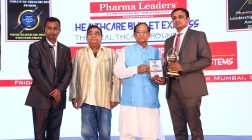Indian pharma companies shifting R&D to South-East Asian countries: Assocham
Indian pharma companies are shifting research and development (R&D) operations and clinical trials to South-East Asian countries due to transparent regulations and sops offered by these nations, a survey by industry body Assocham has said.
“Various South-East Asian countries namely Cambodia, Korea, the Philippines, Singapore, Thailand, Vietnam and others are wooing India’s R&D industry by offering sops and transparent regulations,” the survey said.
South-east Asian countries are emerging as preferable destination for India’s pharma companies to expand their business as they share similar patient population and disease profile and moreover, have a conducive environment for their operations like easy market approach without any regulatory uncertainty, the survey of Indian pharma firms highlighted.
The notification dated January 30, 2013 issued by the department of Health, Ministry of Health & Family Welfare has put a ‘full stop’ to R&D in India, triggering serious concerns amid entire pharma industry, said majority of the industry representatives.
“This notification is not in line with the established international standards and is likely to have a cascading effect on the future of clinical trials in India as the flaws in the gazette could negatively impact the future growth of R&D as well as development of low cost high quality medicines in the country,” it said.
“Flight of operations by India’s pharma majors will surely hit India’s image as a fast-growing, low-cost hub for medical research,” Assocham national secretary general D S Rawat said.
In its letter to the Prime Minister, Assocham has said that India’s pharma industry had touched Rs 1 lakh crore with over Rs 40,000 crore of exports thereby capturing over 20 per cent of the world’s generic market, making India the world’s single largest supplier of vaccines.
“This milestone could not have been achieved without clinical trials for safety and efficacy,” Rawat said.
In fact, in the last two decades Indian generics were tested for bio-equivalence studies in humans and stood the acid test of the toughest regulatory bodies across the globe, which showed the high standards achieved by Indian scientists.
As a result, Indian drug dossiers are accepted by global regulators with the respect they deserve. Besides, it is not surprising that India has the largest number of USFDA approved plants in the world after the United States.
The controversial gazette notification prescribes stringent laws that are not in line with the established regulations, making it almost impossible for the R&D based industry to comprehend it and provides compensation for investigational new drug studies (IND), even if a patient is taking (placebo) sugar pills, or other concomitant medication.

The gazette also makes it mandatory for a study drug to be efficacious – a condition that is nearly impossible to meet since most drugs approved globally are not 100 per cent efficacious every time a patient takes them.
Assocham has also written to the Health Ministry to immediately take action to prevent slowdown of clinical R&D in India while adding that global trials have almost come to a grinding halt in India over the past six months, consequently denying patients suffering from life threatening conditions access to brand new drugs.










